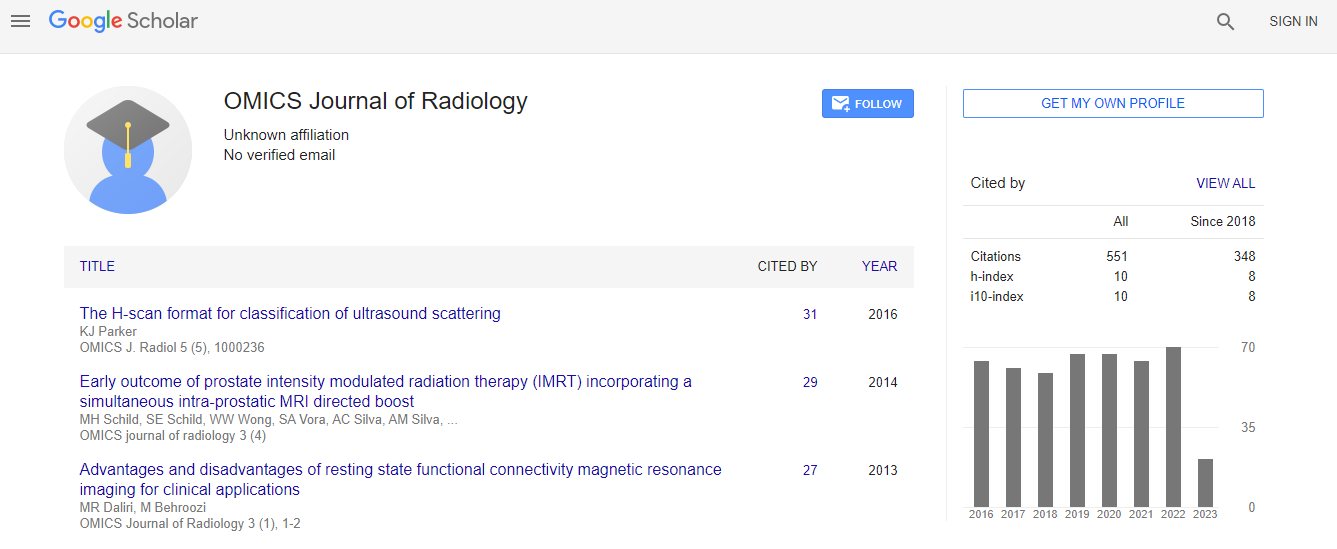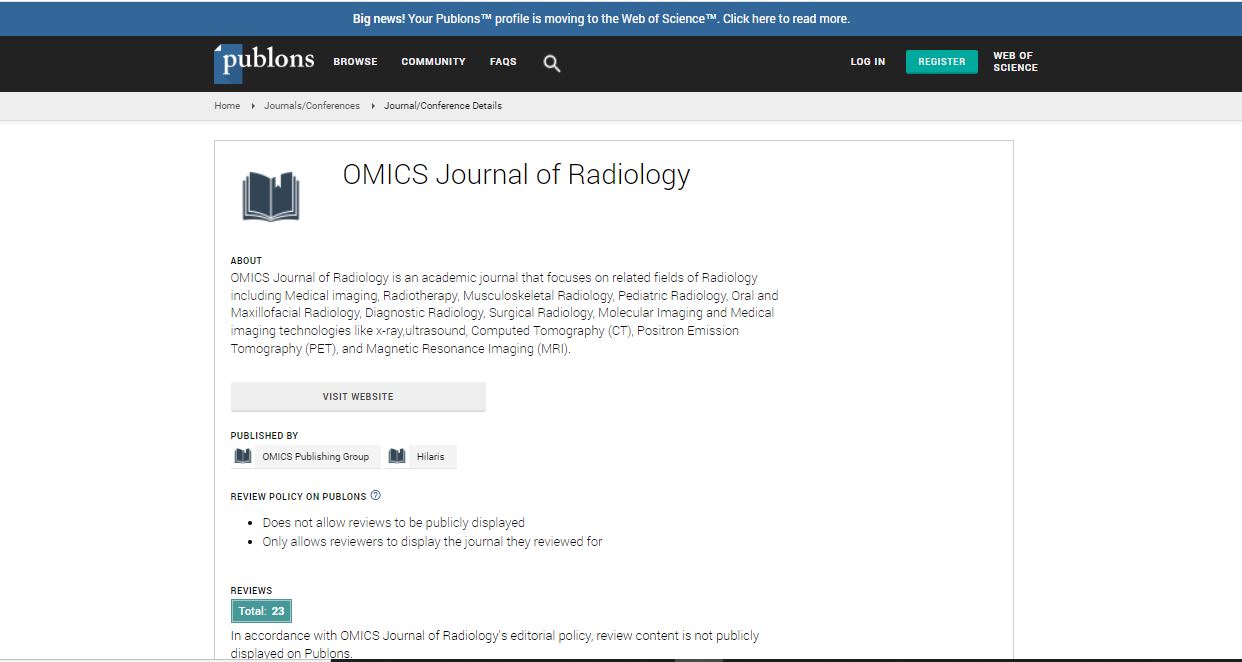Our Group organises 3000+ Global Conferenceseries Events every year across USA, Europe & Asia with support from 1000 more scientific Societies and Publishes 700+ Open Access Journals which contains over 50000 eminent personalities, reputed scientists as editorial board members.
Open Access Journals gaining more Readers and Citations
700 Journals and 15,000,000 Readers Each Journal is getting 25,000+ Readers
Google Scholar citation report
Citations : 551
OMICS Journal of Radiology received 551 citations as per Google Scholar report
OMICS Journal of Radiology peer review process verified at publons
Indexed In
- Index Copernicus
- Google Scholar
- Open J Gate
- Genamics JournalSeek
- ResearchBible
- Electronic Journals Library
- RefSeek
- Hamdard University
- EBSCO A-Z
- OCLC- WorldCat
- SWB online catalog
- Virtual Library of Biology (vifabio)
- Publons
- Geneva Foundation for Medical Education and Research
- ICMJE
Useful Links
Share This Page
Interesting results: Can they be replicated?
3rd International Conference on Radiology and Imaging
Michael Winterdahl
Aarhus University, Denmark
ScientificTracks Abstracts: OMICS J Radiol
Abstract
Negative results in replication attempts are, we believe, of particular value in imaging because they provide an empirical basis by which to evaluate the reliability of findings. As part of the scientific enterprise, we know that replication, the performance of another study statistically confirming the same hypothesis, is the cornerstone of science and replication of findings is very important before any causal inference can be drawn. At the same time the publication bias is very common in journals, favoring positive results. Furthermore, frequent publication is one of the few methods at medical scientists’ disposal to demonstrate academic talent and to bring attention to their sponsoring institutions, which can facilitate continued funding and an individual’s progress through academia. This workshop addresses the need for replication in imaging for two reasons. Firstly, it skews the scientific literature by only including chosen pieces of information. Secondly, it causes a huge waste of time and resources, as other scientists considering the same questions may perform the same imaging studies. Furthermore, given that positive results are more easily published than negative data, it is extremely difficult to correct the scientific record for false positives; controversial studies that conflict with or cannot reproduce previously published studies are seldom given space in peer-reviewed journals. Thus all studies that are hypothesis-driven and describe results based on sound experimental planning and execution should be shared with the scientific community, to avoid repetitive work, waste of resources and to correctly inform future study designs.Biography
Michael Winterdahl is an Associate Professor at Aarhus University and has been working in the field of medical imaging for the last eight years. Recently, he developed a new radioligand for brain imaging of neuropeptide Y type 2 receptors in the intact, living brain using positron emission tomography (PET). He has advanced the compound from initial tests using autoradiography, to preclinical small and large animal imaging, though kinetic modelling, and is now working to launch the first human administration.
Email: winterdahl@gmail.com

 Spanish
Spanish  Chinese
Chinese  Russian
Russian  German
German  French
French  Japanese
Japanese  Portuguese
Portuguese  Hindi
Hindi 
